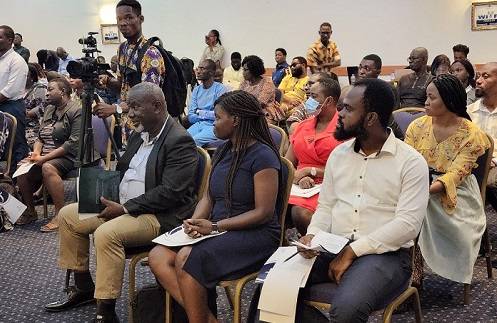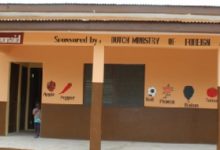
The Centre for Democratic Development (CDD) Ghana has unveiled the maiden edition of the Ghana Cities Monitor (GCM) report, highlighting the quality of life of Ghana’s city dwellers.
The GCM focuses on 23 cities in the three largest metropolis and 20 municipalities in the Greater Accra, Ashanti and Northern regions.
It aims to strengthen evidence-informed decision making in urban planning and encourage greater accountability.
Explaining the findings of the report at the launch in Accra last Thursday, Research Analyst, CDD, Mr Gilfred Asiamah, said the GCM found the need for government to spur socio-economic development and transformation across various urban areas to improve upon the standard of living of dwellers.
He said “This report has exposed the wide gap between individuals living in Accra and those living in the Northern Region which is very critical.”
“The low quality of life in the Northern Region is a contributory factor to the reasons many migrate from that area to Accra, putting so much burden on the already limited resources in the capital of the country,” he added.
He called on policy-makers to ensure urban spaces were well governed, adding that the public must also be interested in holding city authorities accountable on issues of critical concern.
Mr Asiamah also expressed concern over poor provision of social services like health and education, coupled with the high rates of unemployment within the three metropolis of focus.
The research analyst therefore urged the media and Civil Society Organisations (CSOs) to focus on discussing issues peculiar to the quality of life of people living in spaces where they could not have access to essential services.
In her remarks Director of Research, CDD Ghana, Dr Edem Selormey, said the data provided by the research was not just about numbers and figures, but a roadmap toward resolving some of the challenges facing some cities in Accra.
“The GCM stands as a powerful tool, empowering evidence-driven decision-making and augmenting public participation in the governance of our cities.”
“It calls for collective action and a reminder of our shared responsibility to build a prosperous and inclusive Ghana for future generations,” she added.
The 2021 National Population and Housing Census, she said, revealed that urbanisation had rapidly transformed the landscape of Ghana, with close to 60 per cent of the population now residing in cities.
She mentioned that the unprecedented urban growth comes with the opportunity and responsibility to improve the quality of life of citizens, especially for urban dwellers facing the daily realities of urbanisation.
Dr Selormey expressed gratitude to the Hewlett Foundation for providing funding to undertake the project.
BY RAISSA SAMBOU







